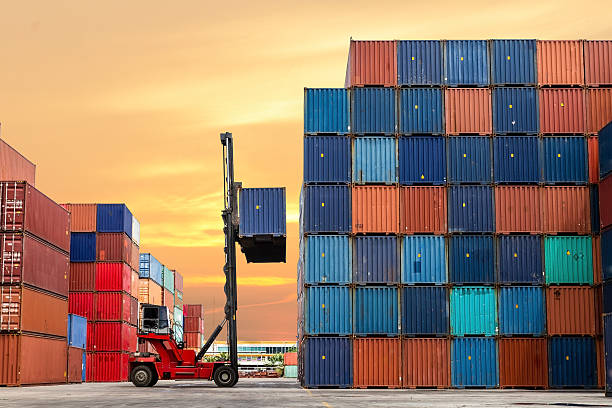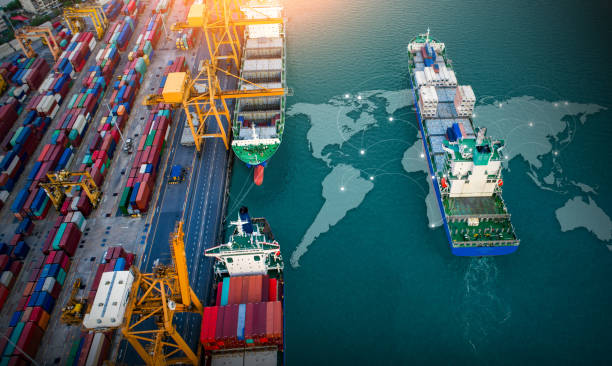International trade, the exchange of goods and services across borders, plays a pivotal role in the global economy. It not only supports economic growth and development but also provides businesses with endless opportunities for expansion. By adhering to trade regulations, such as trade license renewal, countries can ensure a steady flow of imports and exports that boost their GDP and create jobs. This article will dive deeply into the numerous advantages of international trade, including its impact on market reach, product quality, and economic stability.
Economic growth and development
Boosting GDP
Gross Domestic Product (GDP) is a primary indicator of a country’s economic performance, and international trade significantly contributes to its growth. By exporting goods and services, countries can bring in foreign currency, which increases their national revenue. This influx of capital is often reinvested in infrastructure, creating a positive cycle of growth. Additionally, countries that engage in international trade can leverage their comparative advantages, making their economies more efficient and productive.
Job creation
The push for trade license renewal helps streamline the processes involved in international trade, which directly creates employment opportunities. Industries such as manufacturing, shipping, and retail benefit immensely from trade activities. For instance, car manufacturers in Germany rely heavily on foreign buyers, creating thousands of jobs in the sector. Similarly, the garment industry in Bangladesh primarily serves international markets, providing employment to millions.
Indirect employment growth
International trade also indirectly fosters job creation through the multiplier effect. When a company exports goods, it often requires additional services such as marketing, logistics, and customer support. These needs extend the job market beyond the primary industries involved in trade. Moreover, as companies grow and expand due to increased sales, they often create more positions within their organizations, from senior management to entry-level roles.

Expanding market reach
One of the most significant benefits of international trade is access to larger consumer bases. By exporting products, businesses can reach markets that far surpass their domestic capabilities. Companies like Apple and Coca-Cola have thrived globally by penetrating international markets, driving their revenue and brand recognition to unprecedented heights. This expanded market reach allows companies to diversify their risk and reduce dependency on a single market.
Economies of scale
Economies of scale refer to the cost advantages that businesses obtain due to their scale of operation. International trade enables companies to produce goods in larger volumes, reducing the cost per unit. These cost savings can then be passed on to consumers in the form of lower prices, making products more competitive. Additionally, the increased production volumes can lead to higher efficiency in production processes, further driving economic growth.
Improved product and service quality
Competition is a natural outcome of international trade, and it plays a crucial role in fostering innovation. Companies are compelled to improve their products and services continually to stay competitive in the global market. This drive for innovation leads to better quality offerings and new technological advancements, which benefit consumers worldwide. Take, for instance, the smartphone industry, where fierce international competition has led to rapid technological leaps and enhanced user experiences.
Access to advanced technologies
International trade allows countries to import advanced technologies that may not be available domestically. For example, countries lacking in renewable energy technologies can import solar panels and wind turbines from technologically advanced nations. This access to technology can significantly improve local industries, making them more competitive and sustainable. Below is a table demonstrating the import of advanced technologies by countries:
| Country | Technology Imported | Impact on Local Industry |
|---|---|---|
| India | Solar Panels | Enhanced Renewable Energy Sector |
| Brazil | Biofuel Technology | Boosted Biofuel Production |
| South Africa | Water Purification Systems | Improved Water Supply |
Diversifying risk
Market diversification is a strategic benefit of international trade that reduces the risks associated with over-reliance on local markets. By engaging in international trade, businesses can distribute their revenue streams across multiple markets, thereby minimizing the impact of any single market’s economic fluctuations. This diversification is particularly beneficial for businesses in volatile industries, as it provides a buffer against local downturns.
Economic stability
Balanced trade relationships contribute to economic stability by ensuring a constant exchange of goods and services. Countries that have diversified their trade partnerships are better equipped to handle global economic shifts. For instance, if one trading partner faces an economic downturn, a diverse trade portfolio can mitigate the impact. Historical examples include Japan and China, both of which have used diversified trade networks to stabilize their economies during global recessions.

Conclusion
In summary, international trade offers a multitude of benefits ranging from economic growth and job creation to the enhancement of product quality and the diversification of risk. By embracing international trade and keeping trade license renewal processes up to date, countries can ensure the continuous flow of goods and services that drive their economies. As global markets evolve, the importance of fostering strong international trade relationships cannot be overstated, as they are crucial for sustained economic prosperity.
FAQs
Q1: What is international trade?
A1: International trade involves the exchange of goods and services between countries. It allows nations to specialize in the production of certain goods, thereby increasing efficiency and growth.
Q2: How does international trade affect local economies?
A2: International trade can boost local economies by creating jobs, fostering innovation, and enhancing the quality of products and services available in the market.
Q3: Why is market diversification important?
A3: Market diversification reduces reliance on a single market, thereby spreading risk and providing economic stability. This approach protects countries from local economic downturns.
Q4: Can international trade improve product quality?
A4: Yes, international trade encourages competition, which drives businesses to innovate and improve the quality of their goods and services to stay competitive.
Q5: What role does government policy play in international trade?
A5: Government policy is crucial in international trade. Policies such as tariffs, trade agreements, and regulations can either facilitate or hinder trade. Effective policies promote trade relations, economic growth, and development.
